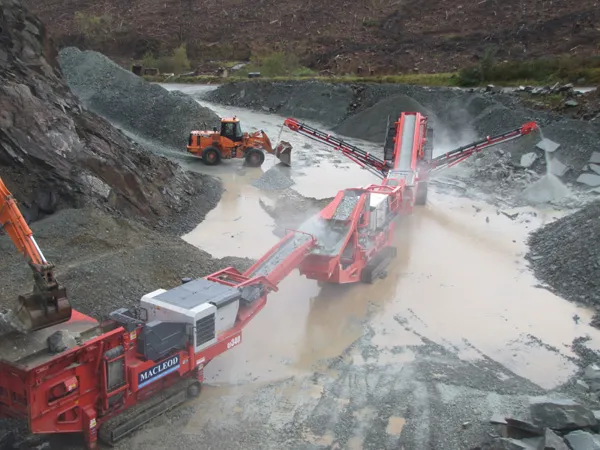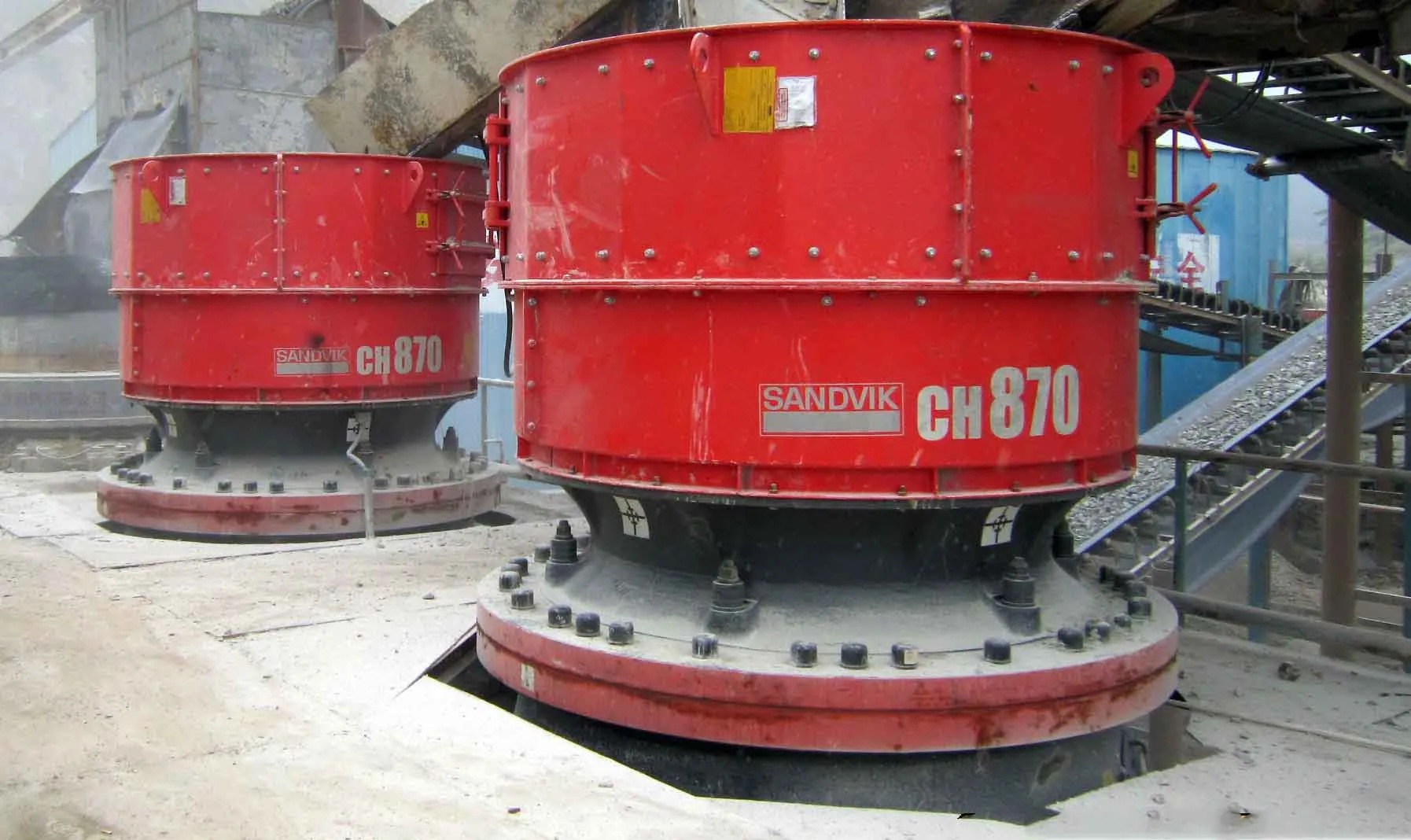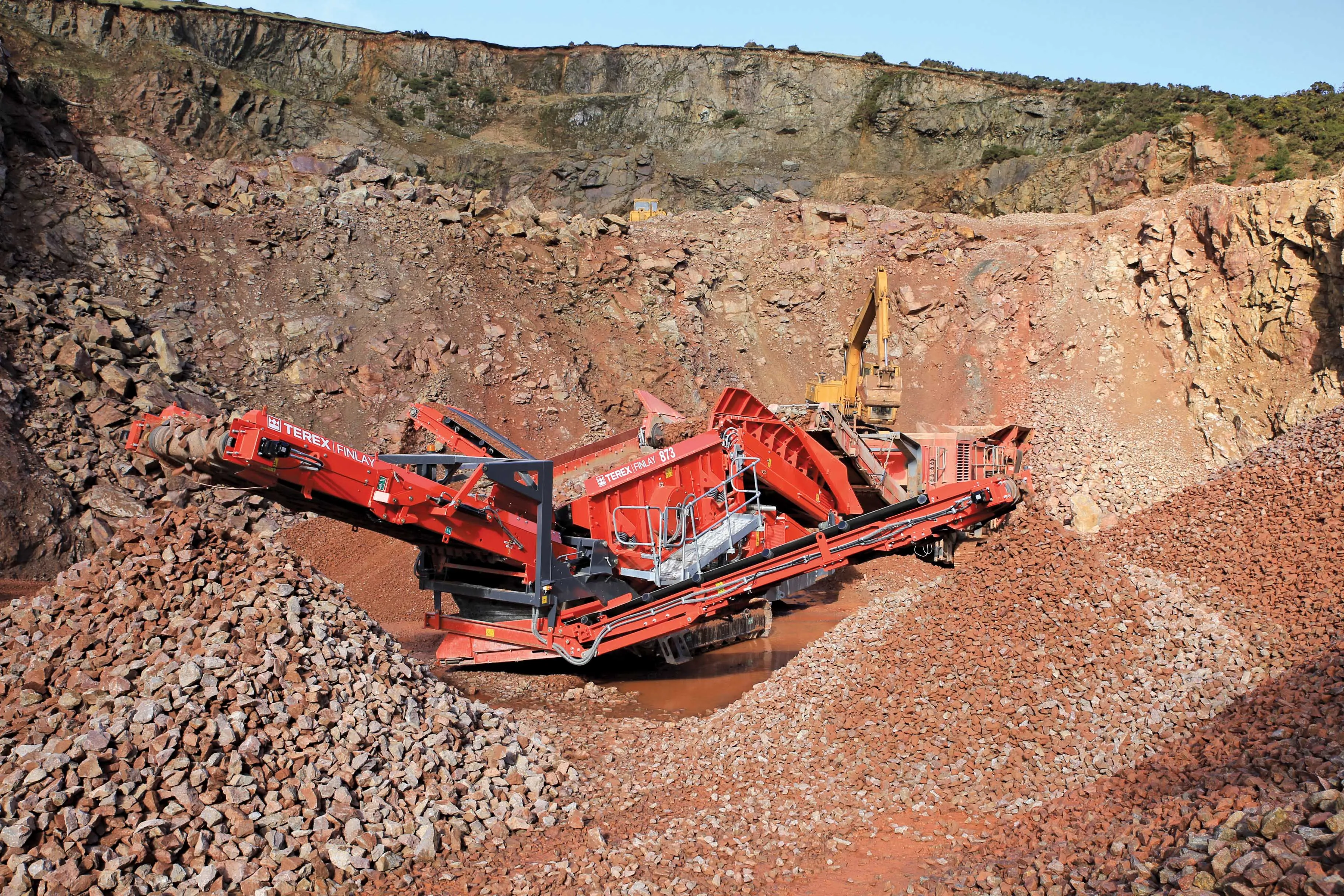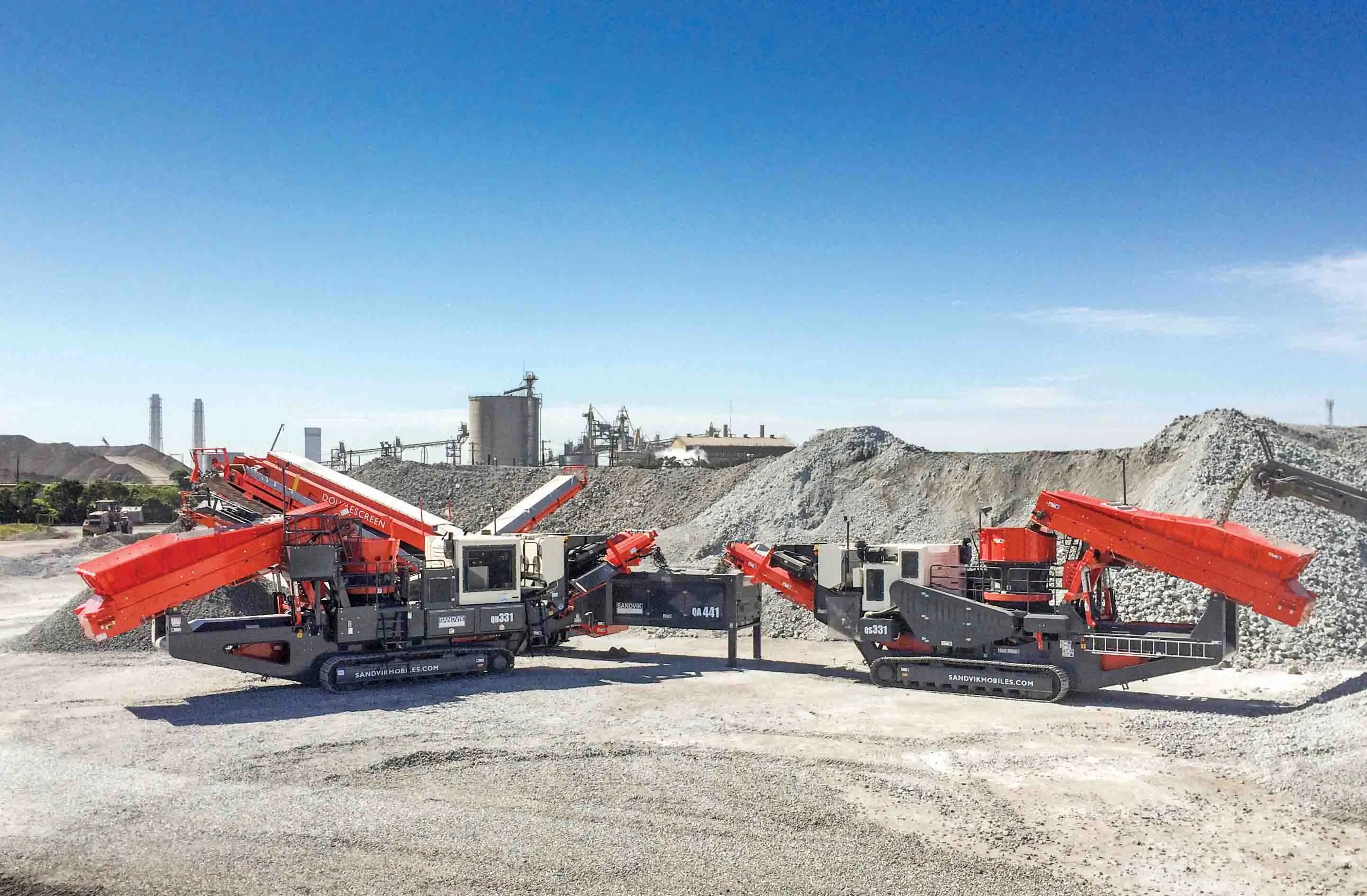In Nigeria a major asphalt producer is increasing production capacity to cope with growing demand for its materials Nigeria is developing its road and highway network, which has triggered greater demand for quality aggregates and asphalt for construction. Producer Asphalt Unity Construction is now meeting this demand with its purchase of new mobile equipment from Sandvik Construction.
June 30, 2014
Read time: 5 mins
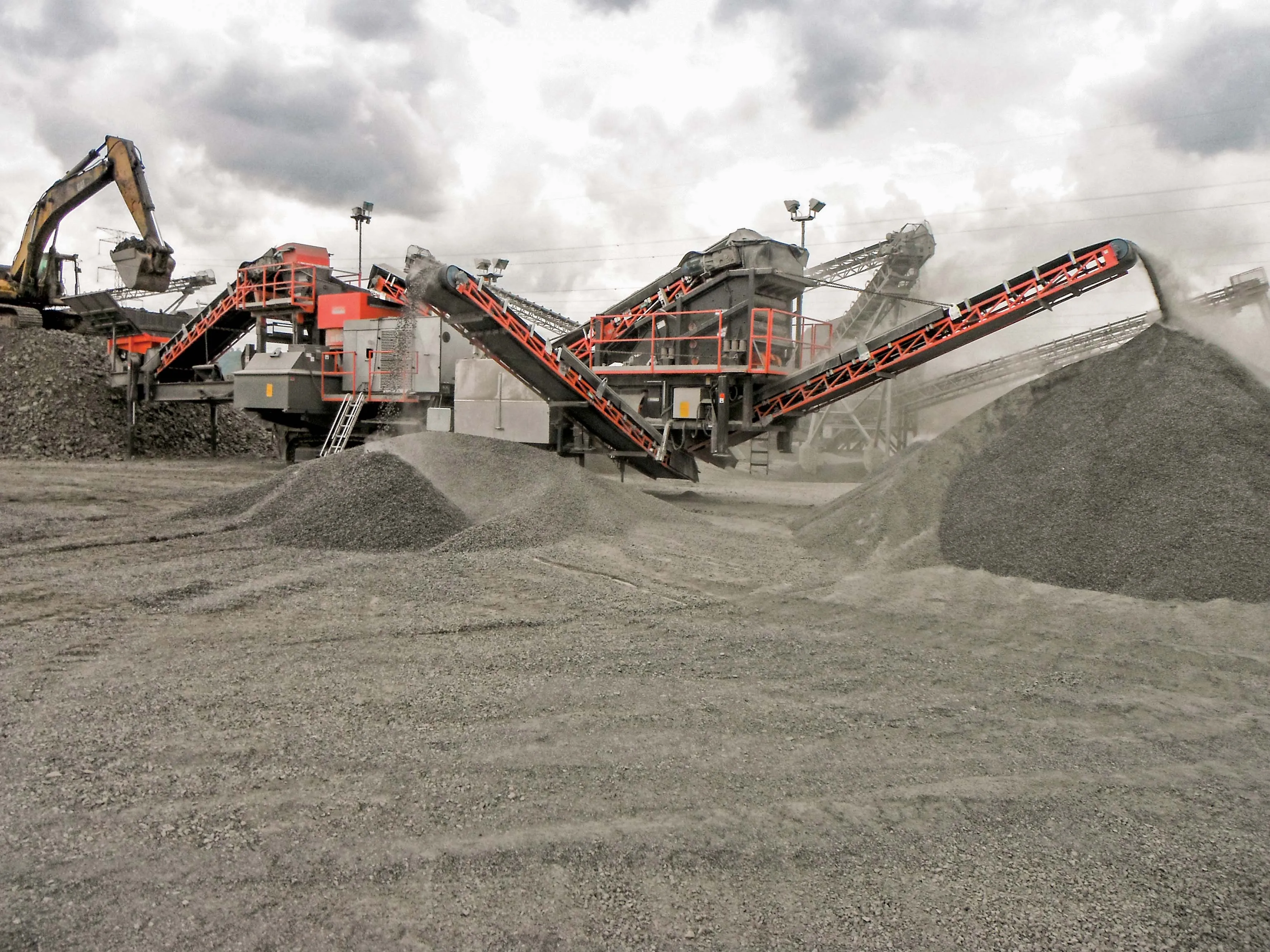
In Nigeria a major asphalt producer is increasing production capacity to cope with growing demand for its materials
Nigeria is developing its road and highway network, which has triggered greater demand for quality aggregates and asphalt for construction. Producer Asphalt Unity Construction is now meeting this demand with its purchase of new mobile equipment from2403 Sandvik Construction.
As an existing user of Sandvik’s range of stationary crushing and screening equipment, the company opted to turn again to a proven supplier and decided to buy a fleet of new mobile crushers and screening units from the manufacturer.
Asphalt Unity Construction, based in Nigeria, began operations in 2009, and is now a multifaceted civil engineering firm. The company was formed when experienced engineers from different establishments came together to put their knowledge and experience to work. It has now become one of the leading construction companies in eastern Nigeria.
The company’s main material application is crushing basalt and granite to be sold on to building contractors. The basalt is commonly crushed for use as an aggregate in construction projects such as road base, concrete aggregate, asphalt pavement aggregate and also railway ballast. With a focus on delivering high quality, in recent years the company has looked to work smarter and become more competitive. Having already experienced what Sandvik stationary crushers can produce, they decided to consider the Sandvik Construction Mobile Crushers and Screens portfolio to help them achieve their annual production target, thereby meeting the industry demands in the Nigerian Delta State.
Mario El Fadi, director of Asphalt Unity Construction, visited the Sandvik Construction Mobiles production facility in Swadlincote, Derbyshire, in September 2013, where he was accompanied by Marshall John, business line manager for Sandvik Construction in Nigeria. After seeking information from key product specialists at the factory, El Fadi placed an order for five tracked units.
The key to the Deal was the versatility of the units, with quick set-up times and reliability. El Fadi commented, “One of the huge advantages of mobile equipment is that no installation is required. We are able to quickly set the equipment up and start production almost immediately.” With the mobile screens and crushers working alongside the stationary models, Asphalt Unity Construction will also benefit from using one set of parts, helping keep costs to a minimum.
To meet the high capacity requirements of up to 700tonnes/h, Asphalt Unity Construction chose from the Sandvik Mobiles heavy-duty (HD) and extra heavy-duty (XHD) portfolio, selecting the UJ640 jaw, together with the US440i and UH640 cone crushers to work alongside two QA451 Doublescreens. The required product sizes are 0-25mm and 0-35mm, so the combination of jaw and cone crusher means the abrasive material can be broken down easily to these levels, with the jaw breaking down the material and the cone providing the shaping.
The UJ640 is a tracked jaw crusher that has been purpose designed for the global aggregates industry, and features the Sandvik CJ615 jaw. The crusher is a single toggle 1500 x 1100mm piece of equipment which provides enormous rates of production due to it being able to accept a maximum feed size of 975mm. Working alongside the jaw are the US440i and UH640 cone crushers.
The US440i is an HD cone crusher capable of accepting a feed size of up to 450mm. Designed for the large mine or quarry operator, the US440i allows Asphalt Unity Construction to maximise their primary jaw production by opening CSS for maximum throughput. It also features the market leading Sandvik CS440 cone crusher which is available with a wide choice of mantles and settings, making it suitable for a huge range of different applications worldwide. Similarly, the UH640 is a flexible, highly productive secondary or tertiary cone crusher that is able to produce finished sized products thanks to an integral product screen and closed circuit operation. It also accepts a maximum feed size of 235mm.
The automatic setting system, ASRi, fitted to these machines is crucial as it optimises the crushing process. By continuously measuring and compensating for crusher liner wear, ASRi allows for optimal utilisation of crusher liners, and enables liner replacements to be scheduled to coincide with planned maintenance stops. The ASRi also assists in keeping the crusher choke fed in order to maximise rock-on-rock crushing, which helps ensure the highest quality end product.
Asphalt Unity also utilises a QA451, a triple deck Doublescreen. This features two inline 10' x 5’ screen boxes, designed specifically to work in closed circuit with tracked crushers. The hydraulically folding fourth product conveyor slews and raises/lowers hydraulically to optimise the feeding position to these upstream units. Using Sandvik’s patented Doublescreen technology, the advanced triple deck Doublescreen system allows for individual changes to the drive, angling, vibration and meshes of each screen box, which allows for ultimate versatility in size and specification of the finished products.
Following the success of the mobile screens and crushers on its basalt application, Asphalt Unity Construction is looking to expand its fleet of equipment to help the company reach a new goal of 1,500tonnes/h.
Nigeria is developing its road and highway network, which has triggered greater demand for quality aggregates and asphalt for construction. Producer Asphalt Unity Construction is now meeting this demand with its purchase of new mobile equipment from
As an existing user of Sandvik’s range of stationary crushing and screening equipment, the company opted to turn again to a proven supplier and decided to buy a fleet of new mobile crushers and screening units from the manufacturer.
Asphalt Unity Construction, based in Nigeria, began operations in 2009, and is now a multifaceted civil engineering firm. The company was formed when experienced engineers from different establishments came together to put their knowledge and experience to work. It has now become one of the leading construction companies in eastern Nigeria.
The company’s main material application is crushing basalt and granite to be sold on to building contractors. The basalt is commonly crushed for use as an aggregate in construction projects such as road base, concrete aggregate, asphalt pavement aggregate and also railway ballast. With a focus on delivering high quality, in recent years the company has looked to work smarter and become more competitive. Having already experienced what Sandvik stationary crushers can produce, they decided to consider the Sandvik Construction Mobile Crushers and Screens portfolio to help them achieve their annual production target, thereby meeting the industry demands in the Nigerian Delta State.
Mario El Fadi, director of Asphalt Unity Construction, visited the Sandvik Construction Mobiles production facility in Swadlincote, Derbyshire, in September 2013, where he was accompanied by Marshall John, business line manager for Sandvik Construction in Nigeria. After seeking information from key product specialists at the factory, El Fadi placed an order for five tracked units.
The key to the Deal was the versatility of the units, with quick set-up times and reliability. El Fadi commented, “One of the huge advantages of mobile equipment is that no installation is required. We are able to quickly set the equipment up and start production almost immediately.” With the mobile screens and crushers working alongside the stationary models, Asphalt Unity Construction will also benefit from using one set of parts, helping keep costs to a minimum.
To meet the high capacity requirements of up to 700tonnes/h, Asphalt Unity Construction chose from the Sandvik Mobiles heavy-duty (HD) and extra heavy-duty (XHD) portfolio, selecting the UJ640 jaw, together with the US440i and UH640 cone crushers to work alongside two QA451 Doublescreens. The required product sizes are 0-25mm and 0-35mm, so the combination of jaw and cone crusher means the abrasive material can be broken down easily to these levels, with the jaw breaking down the material and the cone providing the shaping.
The UJ640 is a tracked jaw crusher that has been purpose designed for the global aggregates industry, and features the Sandvik CJ615 jaw. The crusher is a single toggle 1500 x 1100mm piece of equipment which provides enormous rates of production due to it being able to accept a maximum feed size of 975mm. Working alongside the jaw are the US440i and UH640 cone crushers.
The US440i is an HD cone crusher capable of accepting a feed size of up to 450mm. Designed for the large mine or quarry operator, the US440i allows Asphalt Unity Construction to maximise their primary jaw production by opening CSS for maximum throughput. It also features the market leading Sandvik CS440 cone crusher which is available with a wide choice of mantles and settings, making it suitable for a huge range of different applications worldwide. Similarly, the UH640 is a flexible, highly productive secondary or tertiary cone crusher that is able to produce finished sized products thanks to an integral product screen and closed circuit operation. It also accepts a maximum feed size of 235mm.
The automatic setting system, ASRi, fitted to these machines is crucial as it optimises the crushing process. By continuously measuring and compensating for crusher liner wear, ASRi allows for optimal utilisation of crusher liners, and enables liner replacements to be scheduled to coincide with planned maintenance stops. The ASRi also assists in keeping the crusher choke fed in order to maximise rock-on-rock crushing, which helps ensure the highest quality end product.
Asphalt Unity also utilises a QA451, a triple deck Doublescreen. This features two inline 10' x 5’ screen boxes, designed specifically to work in closed circuit with tracked crushers. The hydraulically folding fourth product conveyor slews and raises/lowers hydraulically to optimise the feeding position to these upstream units. Using Sandvik’s patented Doublescreen technology, the advanced triple deck Doublescreen system allows for individual changes to the drive, angling, vibration and meshes of each screen box, which allows for ultimate versatility in size and specification of the finished products.
Following the success of the mobile screens and crushers on its basalt application, Asphalt Unity Construction is looking to expand its fleet of equipment to help the company reach a new goal of 1,500tonnes/h.


